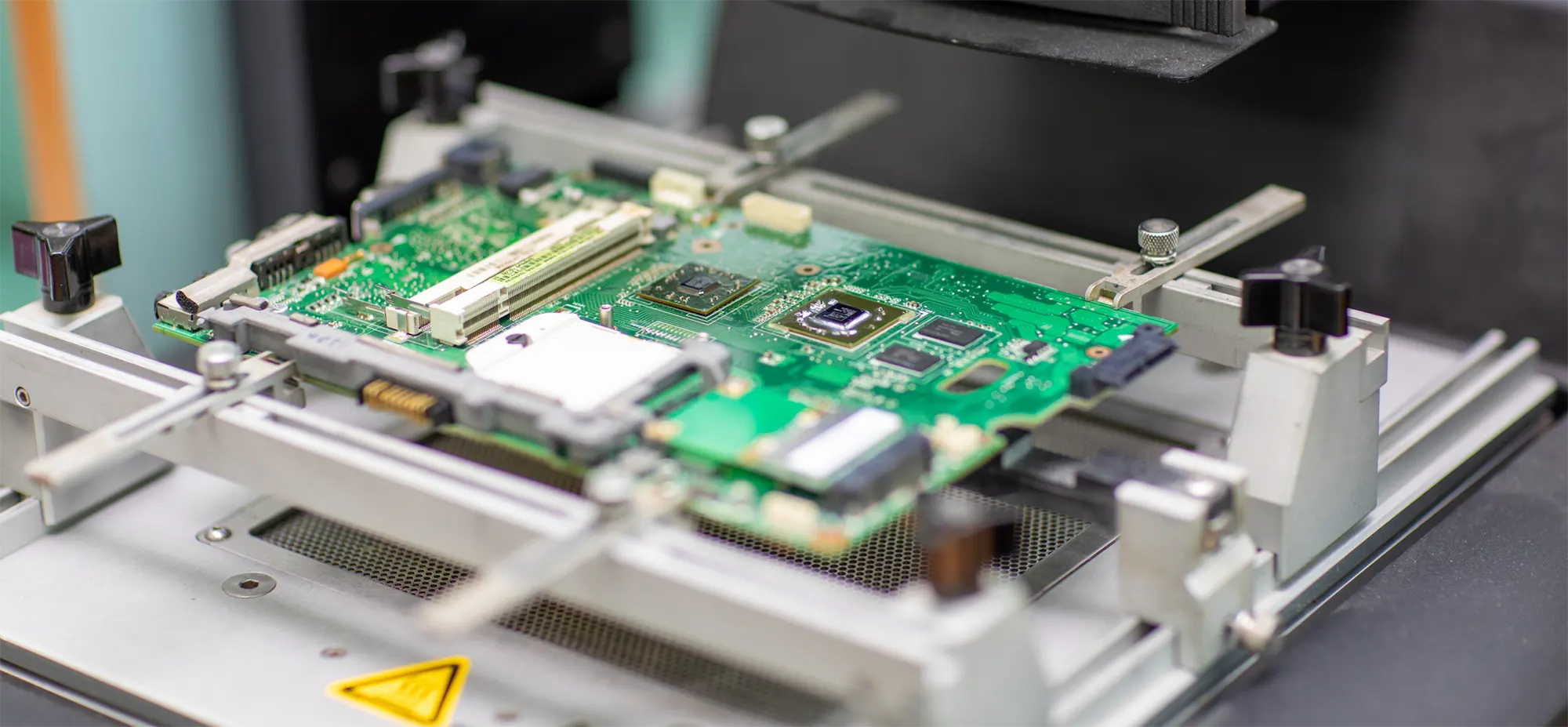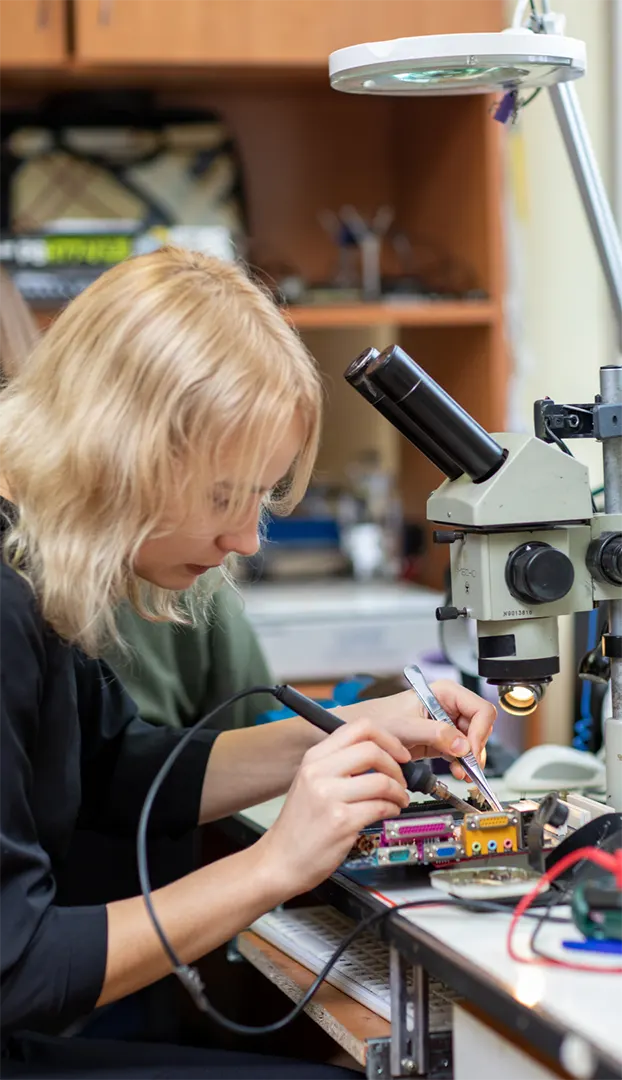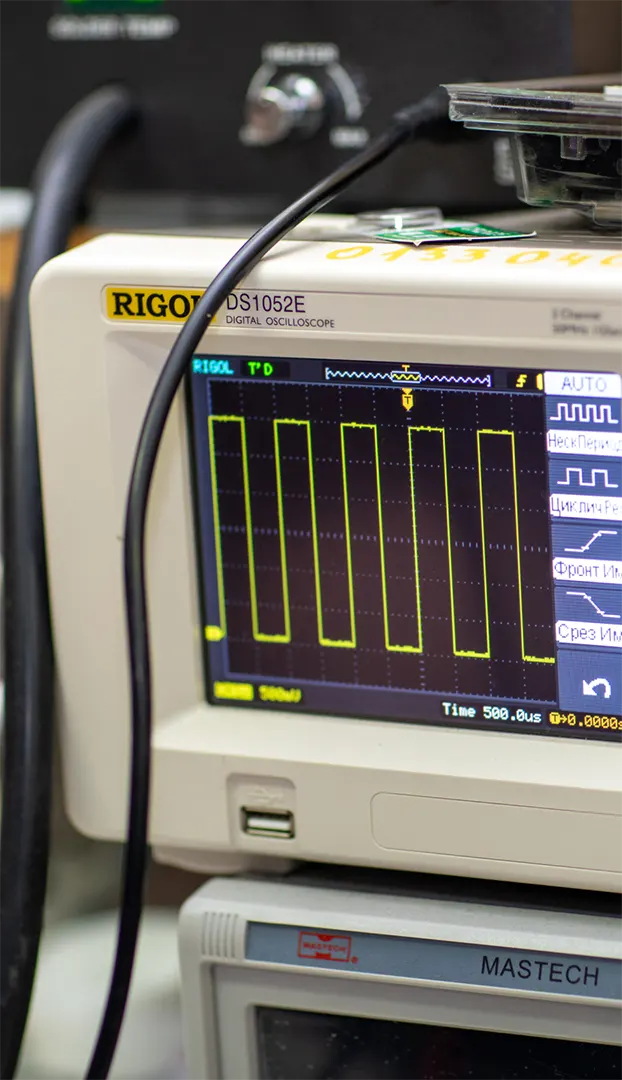Computer Physics

Qualification given: Bachelor / Physicist. Programmer
Faculty: Faculty of Computer Science and Electronics
Department: Department of Physics
Study period: full-time – 4 years
Computer Physics is a special direction of the IT field. Qualified specialists are competitive in the information technology market due to a combination of deep knowledge of physical laws, a high level of mathematical apparatus and skills (from developing mathematical models of processes and phenomena in science, technology and economics to writing program code).
Specialists can solve real physical problems that arise in many production processes, make predictions based on numerical methods about the feasibility of introducing software and information technologies into scientific research, production, energy, medicine, ecology, economics and social life.

Skills and competencies
- Knowledge of basic concepts and basic laws of classical, quantum and theoretical physics
- Ability to use computer modeling methods to solve applied physical and technical problems
- Knowledge of modern methods of programming, capture, storage and processing of information, database management systems
- Knowledge of the algorithm theory and modern programming languages
- Ability to apply object-oriented programming technologies to solve problems of applied physics
- Ability to analyze and evaluate the effectiveness of innovative technologies being developed, to use knowledge about the latest discoveries in natural science, mathematics, information technology
- Ability to develop physical and mathematical models of phenomena, processes or systems for information protection
Graduate destinations
- IT companies (creation and use of mathematical models of processes and objects, programming and application development, technical support of programmable devices)
- Projects organizations (software and information support of design activities, technical support of programmable devices)
- Scientific and industrial organizations (development of effective mathematical methods for solving problems of technology, economics and management, planning and organization of scientific and production and development work)
- Industrial production organizations (network and database administration, information security)
- Research institutes and centers (research work in areas using physical and mathematical methods of analysis and computer technology; determination of innovation goals and ways to implement them)
- Institutions of higher education (planning and organization of scientific and educational activities in the field of physics, mathematics, computer science, programming)
- Organizations engaged in economic and social activities (software and information support of operational and management activities, technical support of programmable devices)

Professional activity
- Development of new technologies, materials and devices based on knowledge of physical principles and laws
- Research work in fields using physical and mathematical methods of analysis and computer technology
- Creation and use of mathematical models of physical phenomena, technological and complex processes
- Development of effective information capture and processing systems based on mathematical methods for solving problems of technology, economics, management
- Software and technical support of the information protection
- Optimization of technological processes, software and information support of design activities
- Development of educational equipment, scientific and methodological support for the educational process in physics
Technologies of education
- The organization of the educational process in the specialty is based on a combination of classical pedagogical methods (lectures, practical and laboratory classes) with modern information and communication technologies based on the implementation of personality-oriented, competence-based, interdisciplinary and practice-oriented approaches.
- The basis of lectures is a combination of an object-illustrative teaching method and a method of problem presentation of educational material using methods and techniques for the development of critical thinking.
- The organization of practical classes is based on the use of the reproductive method.
- The organization of the laboratory workshop is based partly on the search (heuristic) method and the method of project training.
- Peer-to-peer training is actively used.
- To organize the training of the most prepared and purposeful students, a research method is used within the framework of the work of the student scientific circle Modeling of physical processes.
- The quality control of knowledge is carried out on the basis of an individual differentiated approach within the framework of the use of a rating system of knowledge control, which allows the introduction of the portfolio method into the educational process.
Do you have any questions?
Email: